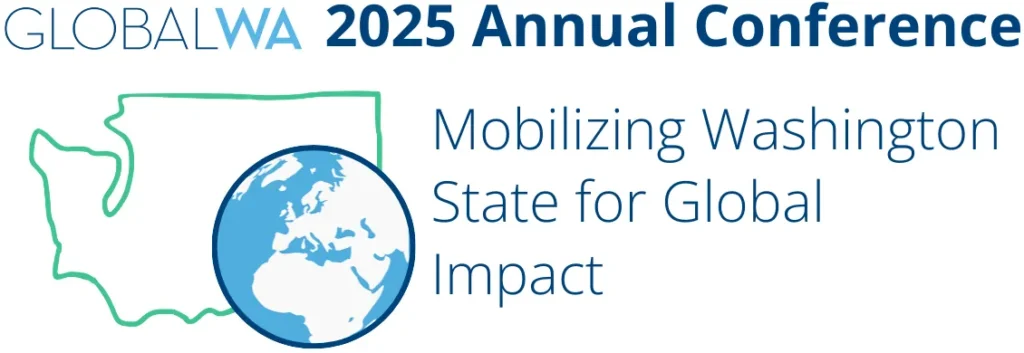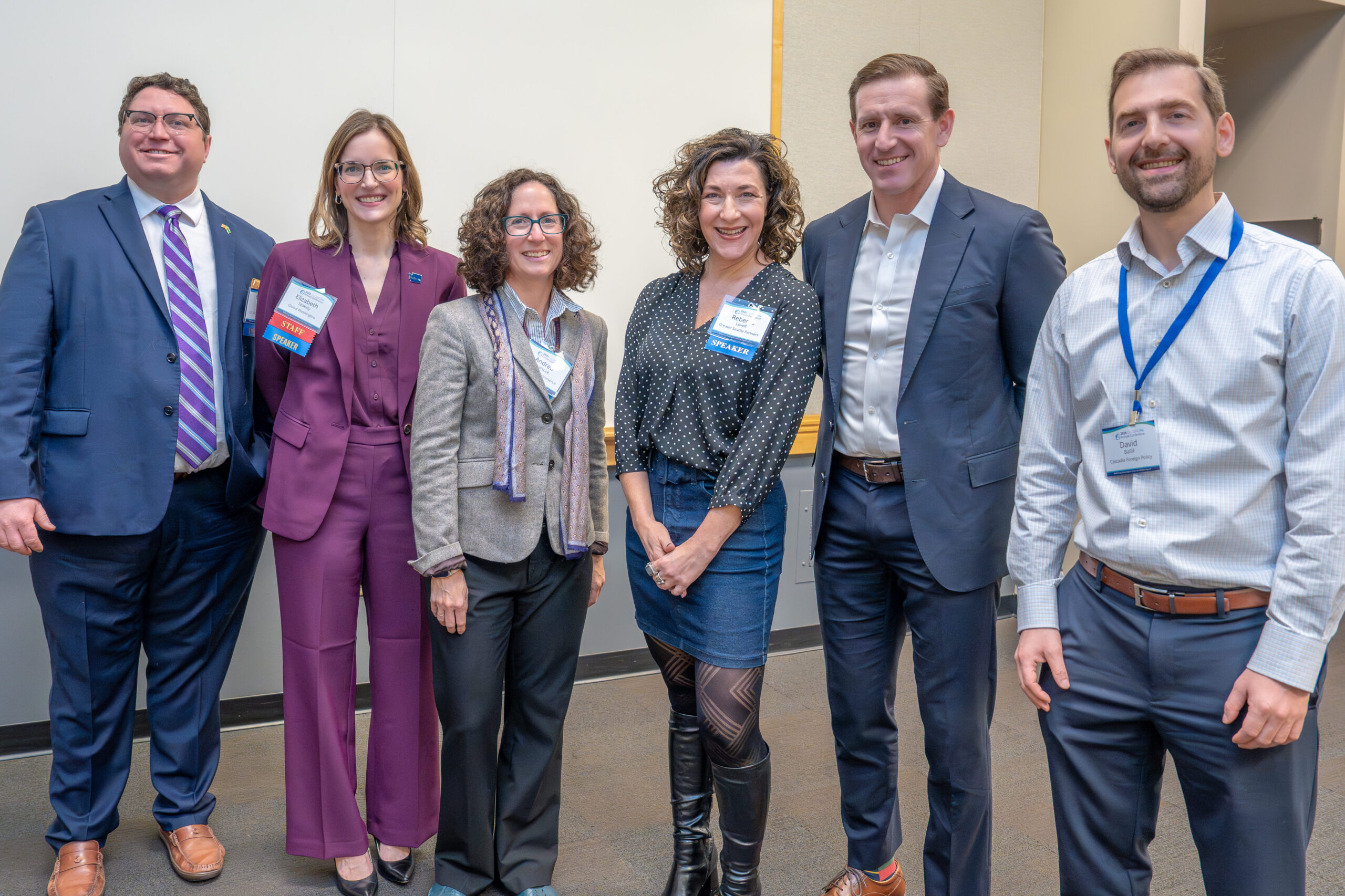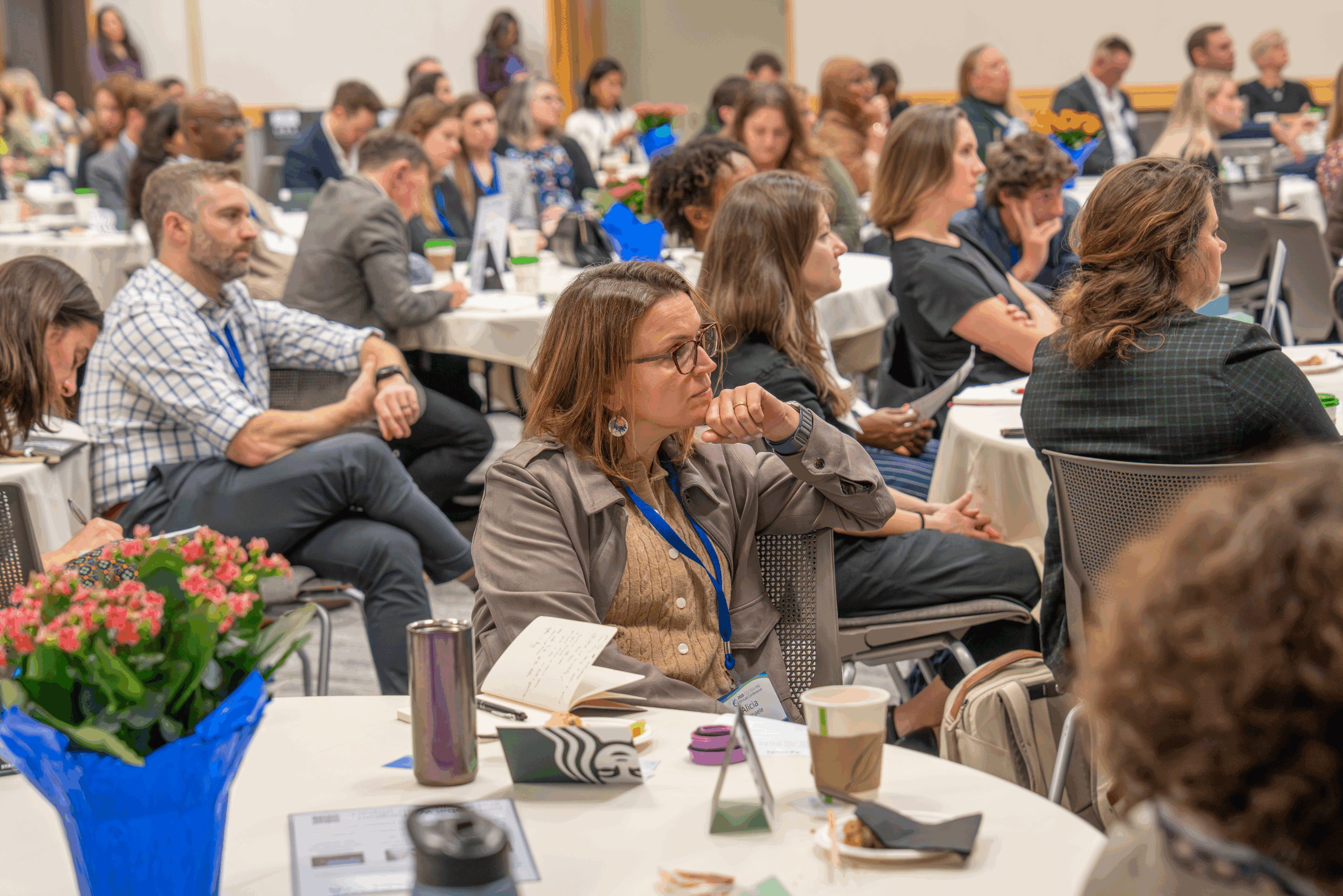From Our Blog
This Is What Mobilizing Looks Like: 2025 Conference Recap
Each year, GlobalWA convenes the global development community at Washington State’s premier global development event. This year, nearly 250 attendees gathered at the Microsoft Conference Center in Redmond under the theme Mobilizing Washington State for Global Impact to explore how local leadership, partnerships, and bold collaboration can drive systemic change worldwide.
This year’s conference felt especially urgent. At a moment when many across the sector are searching for a path forward after a challenging year, the value of gathering in person was palpable. GlobalWA Executive Director Elizabeth Stokely opened the day with a story about her 3-year-old son going to “work” with her, play doctor’s kit in hand. This child’s innate desire to help others was a perfect representation of the longing we all feel to make the world a better place, even as we carry collective grief. While there was no single “aha” moment, the conference made clear that this was the right place to start.
Recent Blog Posts
- A New Way to Connect, Learn, and Lead with GlobalWA
- Introducing Our Wave 2.0: Built With—and For—Survivors
- The CEO of Save the Children U.S. on Navigating a Sudden Funding Crisis
- How Climate Smart Farming Practices are Improving Soil Health, Crop Yields, and Resiliency in West Africa
- What Will Climate Change Mean for Snow Leopards?



